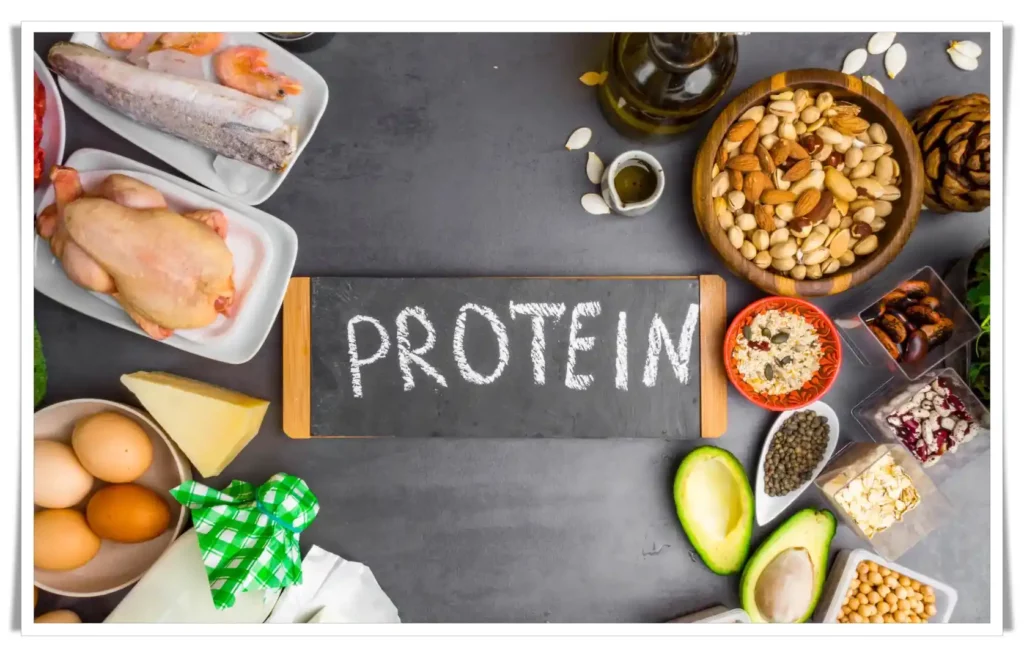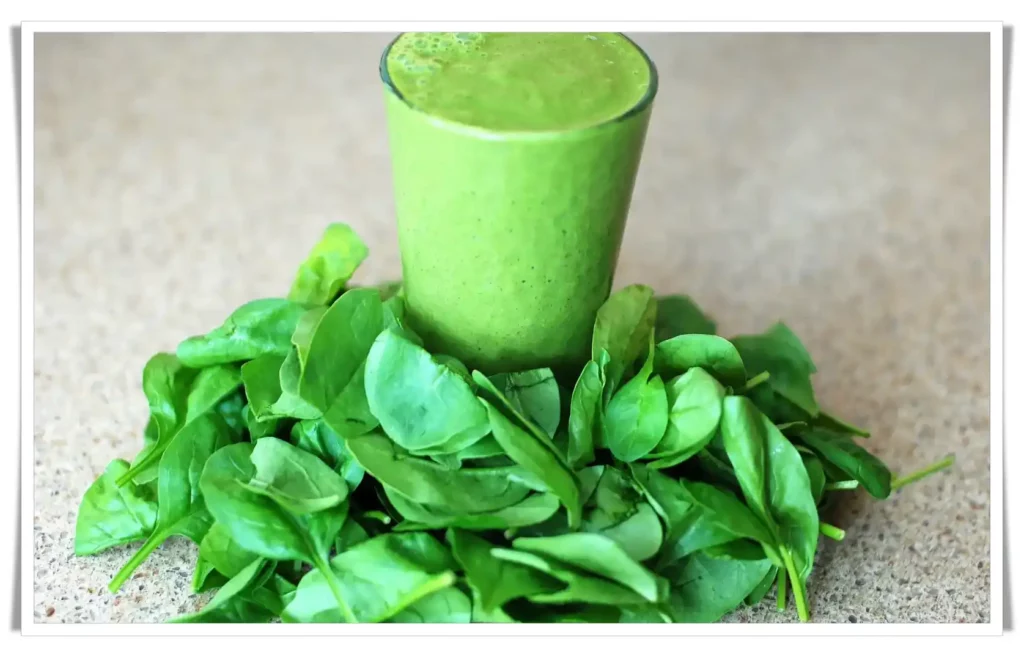What are the food myths?
Food myths refer to widely-held beliefs or misconceptions about food, nutrition, and health that are not supported by scientific evidence. These myths can be spread through popular media, word-of-mouth, or cultural traditions, and may have been passed down for generations. Food myths can range from harmless misunderstandings to potentially harmful advice that can negatively impact one's health. Examples of food myths include beliefs that certain foods can "boost" the immune system, that gluten is inherently harmful, or that sugar causes hyperactivity in children.
Empower Your Health Journey – Explore My Free Apps for a Vibrant, Healthier Lifestyle Today!
There are a lot of dietary recommendations that do not have a scientific explanation, but rather fall into the category of urban legends. Let's clear up some of these myths together!
Please watch also the Video: 15 The Best Debunking Common Food Myths: Separating Fact from Fiction

Here are some additional details about food myths:
- Food myths can be difficult to debunk: Despite scientific evidence disproving certain food myths, they can be hard to shake because they may be deeply ingrained in cultural or social beliefs. Additionally, misinformation can spread quickly and easily through social media and other online platforms.
- Food myths can lead to unhealthy choices: Believing in food myths can lead people to make unhealthy food choices or avoid foods that are actually beneficial. For example, some people may avoid carbohydrates completely, thinking they are bad for weight loss when in reality, some types of carbohydrates are important for overall health.
- Food myths can have real consequences: Believing in certain food myths can have serious consequences for health. For example, people who avoid all fats may not consume enough healthy fats, which can lead to deficiencies in certain nutrients. On the other hand, people who believe in "superfoods" and consume excessive amounts of them can experience negative health effects, such as toxicity from consuming too much of certain vitamins or minerals.
- Food myths are often perpetuated by the media: Media outlets may perpetuate food myths by presenting incomplete or inaccurate information about nutrition and health. Sensational headlines or incomplete reporting can lead to misunderstandings about nutrition and contribute to the spread of food myths.
- Evidence-based nutrition information is the best defence against food myths: The best way to combat food myths is by relying on evidence-based nutrition information from trusted sources. Registered dietitians and other nutrition professionals are trained to provide accurate and up-to-date information about nutrition and can help individuals sort facts from fiction when it comes to food myths.
Please watch also the Video: 15 The Best Debunking Common Food Myths: Separating Fact from Fiction

There are many food myths out there, but here are some common ones that have been debunked by science:
- Myth: Eating fat makes you fat. Fact: Consuming excess calories from any source (fat, carbohydrates, protein) can contribute to weight gain.
- Myth: Carbohydrates are bad for you. Fact: Carbohydrates are an important source of energy and nutrients, and can be part of a healthy diet.
- Myth: Eating after 8 p.m. will make you gain weight. Fact: The time of day you eat doesn't matter for weight gain. What matters is the total amount of calories you consume throughout the day.
- Myth: Drinking juice is as healthy as eating whole fruit. Fact: Fruit juice often contains added sugars and lacks the fiber and other nutrients found in whole fruit.
- Myth: Organic foods are always healthier. Fact: Organic foods may have lower levels of pesticide residue, but they are not necessarily more nutritious than conventionally grown foods.
- Myth: Eating too much protein is bad for your kidneys. Fact: While people with pre-existing kidney disease may need to limit protein intake, eating a high-protein diet is generally safe for healthy individuals.
- Myth: Eating spicy foods causes ulcers. Fact: Spicy foods do not cause ulcers, but they can irritate existing ulcers.
- Myth: Coffee is bad for your health. Fact: Moderate coffee consumption (up to 3-4 cups per day) is not associated with increased health risks and may even have some health benefits.
- Myth: Eating celery burns more calories than it provides. Fact: While celery is low in calories, it does not burn more calories than it provides.
- Myth: Drinking alcohol before bed helps you sleep better. Fact: While alcohol may initially help you fall asleep, it can disrupt the quality of your sleep and cause you to wake up more frequently during the night.
- Myth: Avoid eating egg yolk, it contains a lot of cholesterol! It is true that it contains cholesterol, but cholesterol in food is one thing and cholesterol in the blood is another. The yolk is the most nutritious part of the egg, an essence of high-quality nutrients. It is not the yolk that increases cholesterol, but a sick liver, a sedentary lifestyle, smoking and alcohol.
- Myth: The orange has the highest vitamin C content! That's right, but she's not a champion. Kiwi, papaya and strawberries are richer in vitamin C than citrus fruits. And if you want a consistent intake of vitamin C then eat fresh vegetables, red bell pepper, broccoli and parsley, they are on the top of the list.
- Myth: Frozen vegetables are poorer in nutrients compared to fresh vegetables. It's not true, on the contrary! Cold is the safest preservative, it keeps the vitamins and minerals in food intact. In addition, freezing is done on the spot, immediately after harvesting, to avoid nutrient losses during storage and transport. We also have the advantage that the frozen vegetables are already washed and cleaned, ready to put in the saucepan!
- Myth: Spinach is very rich in iron! True, just not the right iron. The iron present in vegetable products is called non-heme iron and is difficult for the body to absorb and use. If you want effective iron, then eat animal products (organs, red meat, fish and seafood) that contain heme iron.
- Myth: The menu in the cold season must be consistent and rich in fats. Agreed, if we live at the North Pole if we have physical work outside or live in an unheated house. For the rest, regardless of whether it's summer or winter, we still live at 22 °C. We need more calories for thermogenesis only in extremely cold conditions. Unfortunately, we have forgotten to live in rhythm with nature, and even the diet does not take into account the season anymore!
Now let's explain each one separately:
Myth: Eating fat makes you fat.
The idea that eating fat makes you fat is a common myth that has been perpetuated for decades. While it seems to make sense on the surface - consuming more calories than you burn leads to weight gain - the reality is much more complex.
Please watch also the Video: 15 The Best Debunking Common Food Myths: Separating Fact from Fiction

Firstly, it's important to note that not all fats are created equal. Some fats, such as those found in avocados, nuts, and fatty fish, are considered to be healthy and can actually promote weight loss when consumed in moderation as part of a balanced diet. On the other hand, trans fats and excessive amounts of saturated fats found in processed foods and red meat have been linked to increased risk of heart disease and weight gain.
Secondly, the human body needs dietary fat to function properly. Fat plays a crucial role in hormone regulation, cell membrane function, and absorption of fat-soluble vitamins like A, D, E, and K. Without adequate dietary fat, our bodies would not be able to carry out these important functions.
Please watch also the Video: 15 The Best Debunking Common Food Myths: Separating Fact from Fiction

Finally, weight gain is a result of consuming more calories than your body needs, regardless of whether those calories come from fat, carbohydrates, or protein. It's important to maintain a balanced diet and to consume fats in moderation to support overall health.
In summary, the idea that eating fat makes you fat is a myth. Consuming healthy fats in moderation as part of a balanced diet can actually promote weight loss and improve overall health.
Myth: Carbohydrates are bad for you.
Over the years, various fad diets have perpetuated the common myth that carbohydrates are bad for your health. However, in reality, carbohydrates are an essential macronutrient that provides our bodies with energy and is necessary for proper bodily function.
Please watch also the Video: 15 The Best Debunking Common Food Myths: Separating Fact from Fiction

Carbohydrates come in different forms, including sugars, fibers, and starches. Simple carbohydrates, such as those found in sugary snacks and drinks, are typically considered less healthy than complex carbohydrates found in whole grains, fruits, and vegetables.
Complex carbohydrates are an important source of fiber, which is important for digestive health and can also help regulate blood sugar levels. They are also a good source of vitamins and minerals that are essential for overall health.
It's important to note that while carbohydrates are not inherently bad for you, consuming too many carbohydrates, especially in the form of simple sugars, can contribute to weight gain and other health problems. It's important to maintain a balanced diet that includes a variety of nutrient-dense foods and to consume carbohydrates in moderation as part of an overall healthy diet.
So, the idea that carbohydrates are bad for you is a myth. Carbohydrates are an important macronutrient that provides our bodies with energy and is necessary for proper bodily function. It's important to consume carbohydrates in moderation as part of a balanced diet that includes a variety of nutrient-dense foods.
Myth: Eating after 8 p.m. will make you gain weight.
The myth that eating after 8 p.m. will make you gain weight is not entirely true. Weight gain occurs when you consume more calories than you burn, regardless of the time of day that you eat. It is the total number of calories that you consume over the course of a day or week that matters for weight management, not the timing of your meals.
Please watch also the Video: 15 The Best Debunking Common Food Myths: Separating Fact from Fiction

That being said, some studies have suggested that eating late at night may be associated with weight gain. This could be due to a variety of reasons, such as consuming high-calorie, high-fat foods late at night, or eating when your body is not as active and therefore not burning as many calories.
However, it's important to note that the timing of your meals may not have a significant impact on weight gain for everyone. Factors such as individual metabolism, sleep patterns, and overall diet quality may also play a role in weight management.
Ultimately, it's important to focus on maintaining a balanced and healthy diet throughout the day, rather than worrying about the specific timing of your meals.
Myth: Drinking juice is as healthy as eating whole fruit.
This is a common myth that many people believe, but it is not entirely true. While drinking juice can provide some of the same vitamins and minerals found in whole fruit, it does not have the same nutritional value as eating the whole fruit.
Please watch also the Video: 15 The Best Debunking Common Food Myths: Separating Fact from Fiction

When you juice a fruit, you remove the fiber that is found in the pulp and skin of the fruit. Fiber is important for digestive health and helps to slow down the absorption of sugar into the bloodstream. Without fiber, the sugar in juice is absorbed quickly, which can cause a rapid spike in blood sugar levels.
Additionally, many types of juice are high in added sugars, which can contribute to weight gain and other health problems.
Eating whole fruit is a better option for overall health because it provides more fiber and helps to regulate blood sugar levels. It also tends to be more filling, which can help to prevent overeating.
That being said, drinking juice can still be a healthy choice when done in moderation and with the right types of juice. Choose 100% fruit juice with no added sugars, and be sure to pair it with a balanced meal or snack to help regulate blood sugar levels.
Myth: Organic foods are always healthier.
Fact: While organic foods can offer certain benefits, it is not always the case that they are healthier than conventionally grown foods.
Please watch also the Video: 15 The Best Debunking Common Food Myths: Separating Fact from Fiction

Organic foods are produced without the use of synthetic pesticides, fertilizers, or genetically modified organisms (GMOs). They are also often produced using more environmentally sustainable methods.
However, studies have shown that there is no significant difference in the nutrient content of organic versus conventionally grown foods. While organic foods may have lower levels of pesticide residues, the levels found in conventionally grown foods are typically well below the safety limits set by regulatory agencies.
Ultimately, the decision to purchase organic or conventionally grown foods depends on individual preferences and priorities, such as supporting sustainable agriculture practices or avoiding exposure to certain pesticides. But, in terms of nutrition, there is not always a clear advantage to choosing organic over conventionally grown foods.
Myth: Eating too much protein is bad for your kidneys.
For many years, people have believed that consuming excessive amounts of protein can strain the kidneys. However, this notion is not entirely true. The reasoning behind this myth is that protein metabolism produces waste products that the kidneys must work harder to remove.
Please watch also the Video: 15 The Best Debunking Common Food Myths: Separating Fact from Fiction

While it is true that excess protein can increase the workload on the kidneys, there is no evidence to suggest that consuming a high-protein diet is harmful to healthy individuals with normal kidney function. In fact, studies have shown that high-protein diets can be beneficial for weight loss, muscle building, and blood sugar control.
It is worth noting that individuals with pre-existing kidney problems or those who are at risk of kidney disease should be cautious about consuming excessive amounts of protein. In these cases, a doctor or dietitian may recommend limiting protein intake.
Overall, the idea that eating too much protein is bad for your kidneys is a myth that is not entirely accurate. For healthy individuals with normal kidney function, a high-protein diet is safe and can even have health benefits. However, those with pre-existing kidney problems or at risk of kidney disease should be cautious and seek advice from a healthcare professional.
Myth: Eating spicy foods causes ulcers.
Although it has been a widely believed misconception for a while, the notion that spicy foods can cause ulcers is not entirely accurate. While consuming spicy foods may result in a burning sensation in the mouth and throat and some stomach discomfort for certain individuals, they are not a direct cause of ulcers.
Please watch also the Video: 15 The Best Debunking Common Food Myths: Separating Fact from Fiction

Ulcers are sores that develop in the lining of the stomach or small intestine, and they are usually caused by a bacterial infection called Helicobacter pylori (H. pylori) or long-term use of nonsteroidal anti-inflammatory drugs (NSAIDs). Stress and certain foods can aggravate ulcers, but they do not cause them.
In fact, some studies have suggested that capsaicin, the compound that gives chilli peppers their heat, may actually have a protective effect against ulcers by reducing stomach acid secretion and promoting the growth of new cells in the stomach lining.
While spicy foods may not directly cause ulcers, they can exacerbate symptoms in individuals who already have ulcers. If you have ulcers or are prone to stomach discomfort, it may be best to avoid or limit your consumption of spicy foods. It is always a good idea to consult with your doctor or a registered dietitian if you have any concerns about your diet and its effects on your health.
Myth: Coffee is bad for your health.
Coffee can actually have several health benefits when consumed in moderation.
Studies have shown that coffee consumption is associated with a reduced risk of several health conditions, including type 2 diabetes, Parkinson's disease, liver disease, and certain types of cancer. Coffee also contains antioxidants and other beneficial compounds that can have positive effects on the body.
Please watch also the Video: 15 The Best Debunking Common Food Myths: Separating Fact from Fiction

However, it is important to note that excessive consumption of coffee can have negative effects on health. Consuming too much caffeine can cause anxiety, insomnia, and digestive problems, and it can also increase blood pressure and heart rate in some individuals.
Additionally, some people may be more sensitive to the effects of caffeine and may need to limit their intake or avoid coffee altogether. Pregnant women and individuals with certain medical conditions should also be cautious about consuming too much caffeine.
The notion that coffee is generally harmful to health is a misconception. In fact, when consumed in moderation, coffee can offer a number of health benefits. Nevertheless, overindulging in coffee can have adverse effects on health, and certain people may have to restrict their intake or refrain from consuming coffee entirely.
Myth: Eating celery burns more calories than it provides.
The concept of "negative-calorie" foods, such as celery, suggests that the body burns more calories digesting the food than the food itself provides. However, the amount of energy required to digest and absorb food is relatively small compared to the amount of energy provided by the food.
Please watch also the Video: 15 The Best Debunking Common Food Myths: Separating Fact from Fiction

While celery is low in calories, it still provides some energy in the form of carbohydrates, fiber, and other nutrients. One cup of chopped celery contains only about 16 calories, but it also provides fiber, vitamin K, and potassium.
Eating celery can still be a healthy addition to a balanced diet, but it should not be relied upon as a weight loss solution. It is important to consume a variety of nutrient-dense foods to maintain a healthy diet and achieve weight loss goals.
In summary, the idea that eating celery burns more calories than it provides is a myth. While celery is a low-calorie food, it still provides energy and nutrients and should be consumed as part of a balanced diet.
Myth: Drinking alcohol before bed helps you sleep better.
For a long time, people have believed that drinking alcohol before bed can help them sleep better. However, this notion is not entirely accurate. Although alcohol may induce drowsiness and help you fall asleep more quickly, it can actually disrupt your sleep and lead to poorer sleep quality.
Please watch also the Video: 15 The Best Debunking Common Food Myths: Separating Fact from Fiction

Alcohol interferes with the natural sleep cycle of the body by decreasing the time spent in the rapid eye movement (REM) phase of sleep. This can cause fragmented sleep and increased wakefulness during the night, which can leave you feeling fatigued and lethargic the following day.
Furthermore, alcohol can trigger other sleep-related problems such as snoring, sleep apnea, and frequent trips to the restroom. These disturbances can further compromise the quality of your sleep and make you feel less refreshed in the morning.
It is crucial to note that while alcohol may appear to make you feel calm and sleepy, it is not a reliable or healthy sleep aid. If you have trouble sleeping, there are other tactics you can try, such as establishing a regular sleep schedule, avoiding caffeine and electronic devices before bedtime, and creating a sleep-conducive atmosphere.
In conclusion, the belief that consuming alcohol before bedtime improves your sleep is a fallacy. Although alcohol may initially make you feel drowsy and help you fall asleep faster, it can actually disrupt your sleep and result in poorer sleep quality. It is important to establish healthy sleep habits and seek medical advice if you have persistent sleep difficulties.
Myth: Avoid eating egg yolk, it contains a lot of cholesterol!
Although a widely held belief for many years, the notion that consuming egg yolks will elevate your cholesterol levels is not entirely accurate. Although egg yolks do contain cholesterol, studies indicate that eating moderate amounts of dietary cholesterol, such as those found in egg yolks, generally does not lead to a significant increase in blood cholesterol levels for most individuals.
In fact, egg yolks are a nutrient-dense food that contains a variety of vitamins and minerals, including vitamins A, D, E, and K, as well as folate and iron. Egg yolks are also a good source of choline, an essential nutrient that plays a role in brain and liver function.
Please watch also the Video: 15 The Best Debunking Common Food Myths: Separating Fact from Fiction

It is important to note that dietary cholesterol may have a greater impact on blood cholesterol levels in certain individuals, such as those with diabetes or a family history of high cholesterol. For these individuals, it may be recommended to limit their intake of dietary cholesterol.
However, for most healthy individuals, consuming one or two whole eggs per day is not likely to have a significant impact on blood cholesterol levels or heart health. In fact, some research suggests that including eggs in a healthy diet may actually have some health benefits, such as improving satiety and supporting weight loss.
So, the idea that you should avoid eating egg yolks because they contain a lot of cholesterol is a myth. While egg yolks do contain cholesterol, consuming moderate amounts of dietary cholesterol is not likely to significantly increase blood cholesterol levels in most people. Egg yolks are a nutrient-dense food that can be included as part of a healthy and balanced diet.
Myth: The orange has the highest vitamin C content!
While oranges are often associated with being a good source of vitamin C, they are not actually the food with the highest vitamin C content.
In fact, there are several other foods that contain more vitamin C per serving than oranges. For example, guava, kiwi, papaya, strawberries, and bell peppers all contain more vitamin C per serving than oranges.
Please watch also the Video: 15 The Best Debunking Common Food Myths: Separating Fact from Fiction

However, oranges are still a good source of vitamin C, with a medium-sized orange containing about 70 milligrams of vitamin C. Vitamin C is an essential nutrient that plays a role in immune function, wound healing, and collagen production.
It is important to consume a variety of nutrient-dense foods to ensure that you are meeting your daily recommended intake of vitamin C and other essential nutrients. While oranges may not have the highest vitamin C content, they can still be a healthy addition to a balanced diet.
Myth: Frozen vegetables are poorer in nutrients compared to fresh vegetables.
Fresh vegetables begin to lose their nutrient content as soon as they are harvested. This process continues during transportation and storage, which can lead to a significant reduction in nutrient content by the time they reach the consumer.
Please watch also the Video: 15 The Best Debunking Common Food Myths: Separating Fact from Fiction

Frozen vegetables, on the other hand, are typically harvested at peak ripeness and immediately flash frozen, which helps to preserve their nutrient content. In some cases, frozen vegetables may actually be more nutrient-dense than fresh vegetables, particularly if the fresh vegetables have been transported long distances or stored for long periods of time.
One thing to be aware of is that some frozen vegetables may be packaged with added salt, sauces, or other ingredients that can increase their calorie and sodium content. To ensure that you are getting the most nutritious frozen vegetables, look for options that are plain and free from added ingredients.
Mind that, frozen vegetables are poorer in nutrients compared to fresh vegetables is a myth. Frozen vegetables can be just as nutritious as fresh vegetables, if not more so, due to their preservation of nutrient content through flash freezing. When selecting frozen vegetables, look for options that are plain and free from added ingredients.
Myth: Spinach is very rich in iron!
While spinach is a good source of iron, it is not necessarily the richest source of iron among all foods.
Spinach is a plant-based source of iron, which is not as readily absorbed by the body as heme iron, the type of iron found in animal-based sources such as red meat, poultry, and fish. The iron in spinach is also bound to compounds called oxalates, which can further reduce its absorption.
Please watch also the Video: 15 The Best Debunking Common Food Myths: Separating Fact from Fiction

While spinach does contain a moderate amount of iron, there are several other foods that are even richer sources of iron, including:
- Liver (beef, pork, chicken)
- Oysters
- Clams
- Fortified breakfast cereals
- Lentils
- Tofu
- Kidney beans
- Dark chocolate
It is important to note that iron absorption is influenced by several factors, including the presence of other nutrients in the diet, such as vitamin C, and certain substances that can inhibit iron absorption, such as tea and coffee. Consuming a varied diet that includes a mix of iron-rich foods can help ensure that you are getting enough iron to meet your body's needs.
To sum up, the belief that spinach is an extremely iron-rich food is a misconception. Although spinach is a decent source of iron, it is not necessarily the most abundant source of iron available in all foods. A varied diet that includes a range of iron-rich foods can aid in ensuring that you consume sufficient iron to meet your body's requirements.
Myth: The menu in the cold season must be consistent and rich in fats.
While it is true that many people crave richer, heavier foods in the cold season, it is not necessarily true that the menu needs to be consistent and rich in fats.
In fact, a diet that is consistently high in fat can be detrimental to health, increasing the risk of chronic diseases such as heart disease, diabetes, and obesity. Instead, it is important to maintain a balanced diet that includes a variety of nutrient-dense foods, regardless of the season.
Please watch also the Video: 15 The Best Debunking Common Food Myths: Separating Fact from Fiction

In the cold season, it can be helpful to focus on warming, nourishing foods that provide the body with the nutrients it needs to stay healthy and energized. Some examples of these types of foods include:
- Warm soups and stews made with nutrient-rich ingredients such as vegetables, legumes, and lean proteins
- Whole grains such as brown rice, quinoa, and oats, which are high in fiber and help to provide sustained energy
- Seasonal fruits and vegetables, which are a good source of vitamins, minerals, and antioxidants
- Healthy fats such as nuts, seeds, avocado, and olive oil, which provide energy and support brain and heart health
- Herbal teas and warm beverages such as hot chocolate made with unsweetened cocoa powder, which can provide comfort and warmth without added sugars and unhealthy fats.
To conclude, the notion that a winter menu should be dense and fatty is a misconception. While it is accurate that people may desire richer, more substantial foods during the colder months, it is crucial to maintain a balanced diet that includes a range of nutrient-dense foods, regardless of the season. Prioritizing warming and nourishing foods can aid in sustaining health and energy levels during the winter season.
Please watch also the Video: 15 The Best Debunking Common Food Myths: Separating Fact from Fiction
Conclusion
In conclusion, it is important to be aware of nutrition myths and separate them from facts to make informed decisions about our diet and overall health. We debunked several common nutrition myths in this conversation, including the ideas that eating too much protein is bad for your kidneys, spicy foods cause ulcers, coffee is bad for your health, egg yolks are unhealthy due to their cholesterol content, frozen vegetables are poorer in nutrients compared to fresh vegetables, and spinach is very rich in iron. By understanding the truth behind these and other nutrition myths, we can make healthier and more informed food choices and maintain a balanced, nutritious diet.
If you have questions or want to comment, please leave them below and I will answer as soon as I can.
Thank you for reading ''15 The Best Debunking Common Food Myths: Separating Fact from Fiction''





Wow, amazing blog format! How lengthy have you been blogging for?
you made blogging glance easy. The total glance of your website is excellent,
as well as the content! You can see similar: ecommerce and
here dobry sklep
Have you ever considered about including a little bit
more than just your articles? I mean, what you say is fundamental and
all. But imagine if you added some great photos or video clips
to give your posts more, “pop”! Your content
is excellent but with pics and videos, this website could undeniably be one of the greatest in its field.
Amazing blog! I saw similar here: e-commerce and also here:
sklep internetowy
Heya i’m for the first time here. I came across this board
and I find It truly useful & it helped me out much.
I hope to give something back and aid others like you
helped me. I saw similar here: E-commerce